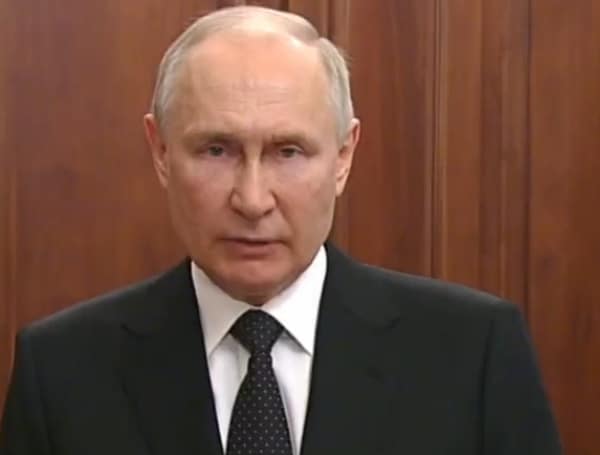
Russian President Vladimir Putin indicated Thursday that he expects President-elect Donald Trump to accommodate Russia’s interests without offering reciprocal benefits.
Speaking at the Valdai Club forum, Putin emphasized that any attempt to “restore” U.S.-Russia relations must come from the American side and implied that the Kremlin would only consider improving ties if the United States lifts sanctions and ceases support for Ukraine—terms that heavily favor Russia.
Putin’s remarks were accompanied by assurances from Kremlin spokesperson Dmitry Peskov that Russia’s military objectives in Ukraine remain unchanged despite the overtures for dialogue.
RELATED: Putin Congratulates Trump’s Presidential Win, Calls Him ‘Manly’
Analysts suggest that Putin’s comments are aimed more at signaling strength to his domestic audience than at genuinely seeking a diplomatic reset with the incoming Trump administration.
Independent Russian outlet Meduza reported that the Kremlin issued directives to state media, instructing them to portray Putin’s Valdai address as a declaration of Russia’s role in shaping a “new world order.”
The narrative depicted Putin as the “world’s greatest leader” with unmatched strategic vision, downplaying his comments about Trump or potential U.S. negotiations. This framing aligns with the Kremlin’s broader strategy of positioning Russia as a central player in a global power shift away from Western dominance.
Putin laid out a six-point plan for his proposed “new world order,” advocating for global openness, the rejection of security blocs, and “sovereign equality” of states.
READ: Putin Resumes Saber-Rattling, Highlights Russian Nuclear Capabilities In Deterrence Exercise
However, his rhetoric sharply contrasts with Russia’s aggressive actions in Ukraine, its destabilization efforts in Moldova and Georgia, and alliances with anti-Western regimes like North Korea, China, and Iran. Critics argue that Putin’s vision is a thinly veiled attempt to legitimize Russia’s own expansionist policies and to challenge the influence of NATO and Western democracies.
“Returning to the dialectic of history, we can say that the parallel existence of conflict and the desire for harmony is, of course, unstable. The contradictions of the era must sooner or later be resolved by synthesis, a transition to another quality,” said Putin. “And when entering this new phase of development – the construction of a new world architecture, it is important for all of us not to repeat the mistakes of the end of the last century, when, as I have already said, the West tried to impose on everyone its deeply, in my opinion, vicious model of exiting the Cold War, fraught with new conflicts.”
Putin Revisits Justifications for Ukraine Invasion
In a pointed response to a question about Ukraine’s borders, Putin doubled down on his false narrative that Ukraine violated its neutral status, supposedly prompting Russia’s invasion.
He referenced the 1991 Ukrainian Declaration of Independence but failed to acknowledge that Ukraine’s move towards NATO alignment came only after Russia’s annexation of Crimea in 2014. Putin also misused the UN Charter’s self-determination clause to defend Russia’s sham referendums in occupied Ukrainian territories, attempting to legitimize the illegal annexations.
Downplaying North Korean Ties
Putin sought to minimize the significance of Russia’s growing partnership with North Korea, likely to maintain a diplomatic channel with South Korea and discourage its support for Ukraine. While addressing a question about recent Russia-North Korea agreements, Putin claimed that the strategic partnership is merely a continuation of past Soviet-era treaties. However, this downplaying contrasts with reports of up to 12,000 North Korean troops being deployed to fight alongside Russian forces in Ukraine.
Despite Putin’s attempt to present the relationship as routine, other Russian officials have characterized the ties as “unprecedented” and “historic,” indicating a deepening alliance with North Korea. Observers suggest that Putin is trying to strike a delicate balance, seeking North Korean support while avoiding escalating tensions with South Korea, which has signaled a potential increase in aid for Ukraine in response to North Korea’s alignment with Russia.
Please make a small donation to the Tampa Free Press to help sustain independent journalism. Your contribution enables us to continue delivering high-quality, local, and national news coverage.
Android Users: Download our free app to stay up-to-date on the latest news.
Connect with us: Follow the Tampa Free Press on Facebook and Twitter for breaking news and updates.
Sign up: Subscribe to our free newsletter for a curated selection of top stories delivered straight to your inbox.


